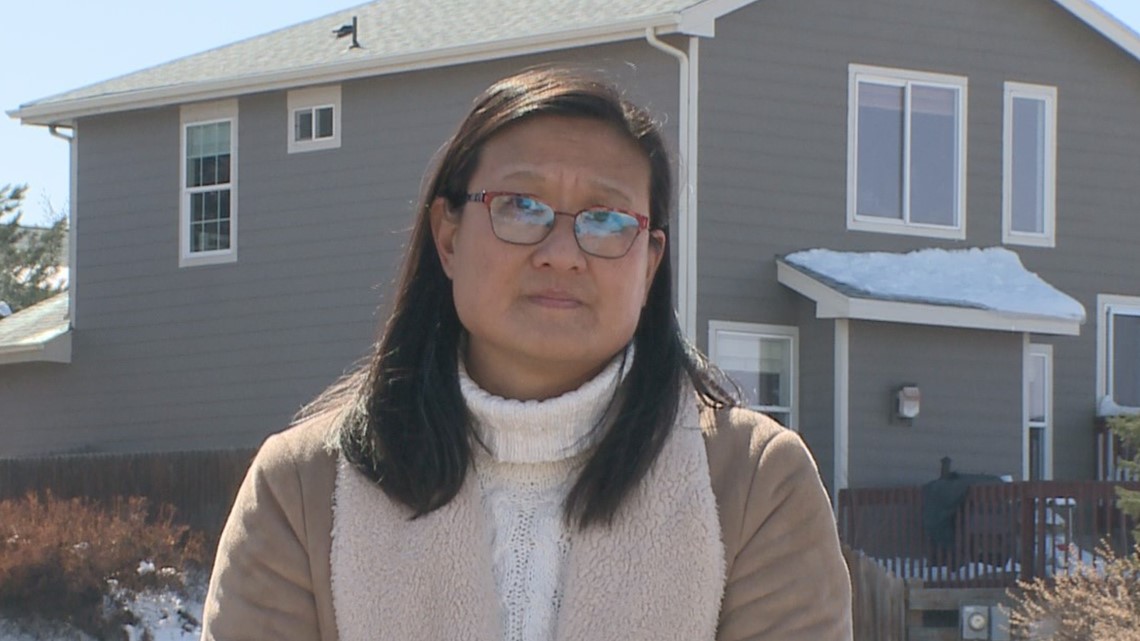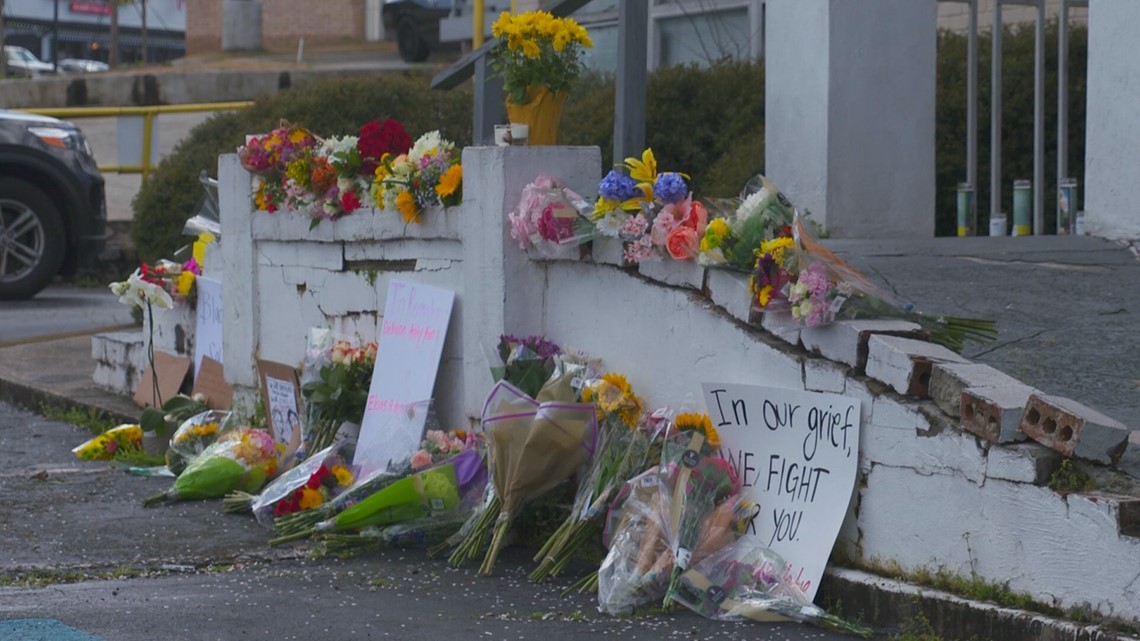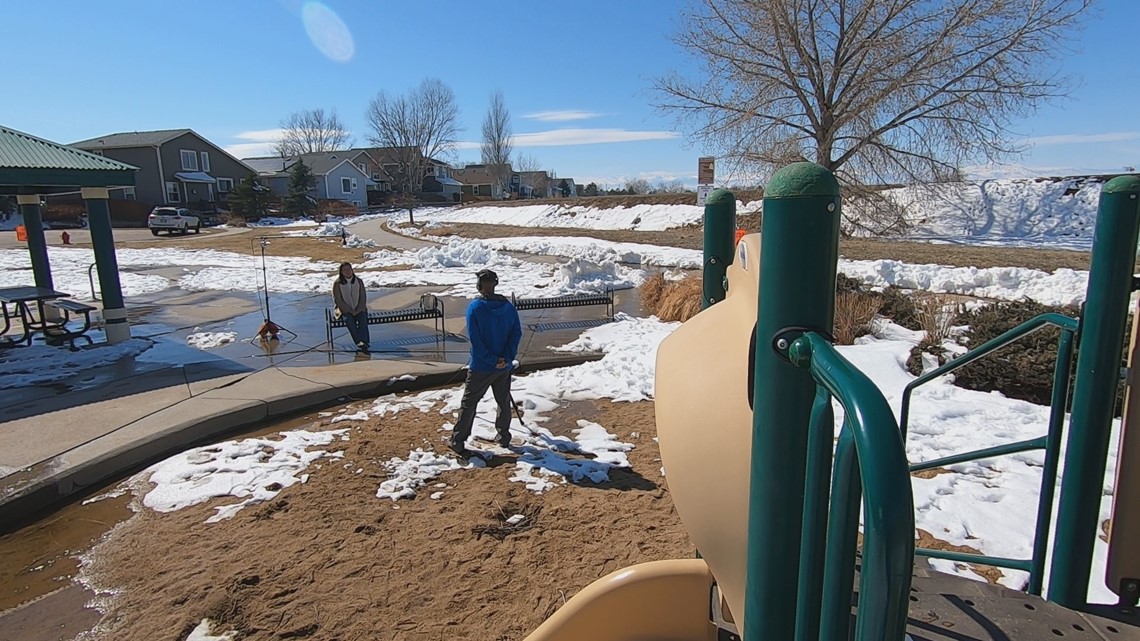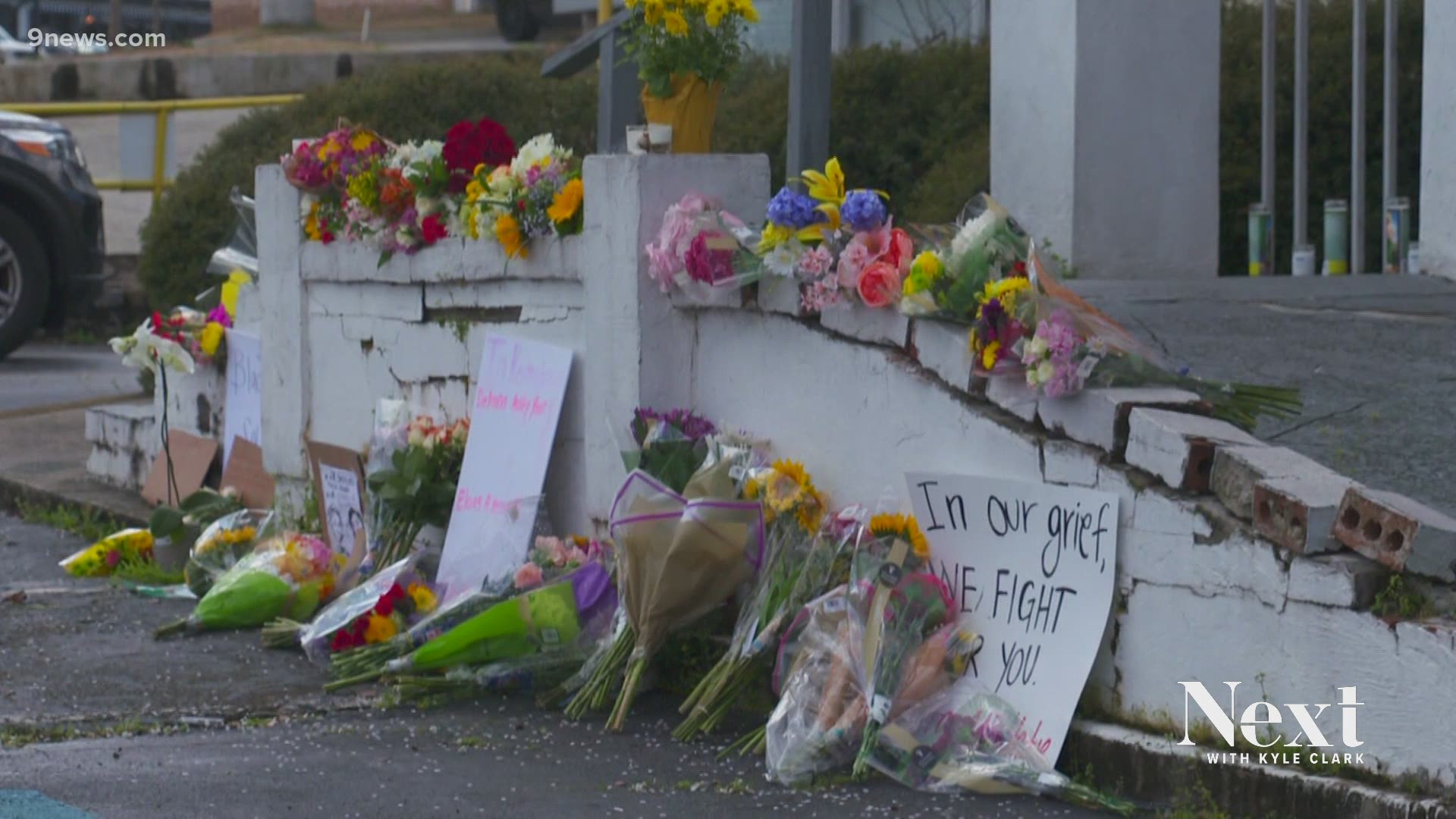BOULDER COUNTY, Colo. — Dr. Jennifer Ho describes herself as an anti-racism educator and views this week’s violence in Georgia both as a terrible tragedy and as an opportunity to speak out against discrimination.
She wrote a commentary for CNN about what it’s like to be an Asian woman in America and has since been inundated with interview requests from media outlets.
Dr. Ho is an ethnic studies professor and director of the Center for Humanities and the Arts at the University of Colorado-Boulder and president of the Association for Asian American Studies. She sat down with 9NEWS to talk about the Atlanta area shootings, her essay in response to the violence and what we can all do to counteract racism.


(Editor’s note: Responses have been edited for context and clarity.)
9NEWS: What was it like for you to watch the news coming out of the Atlanta area this week?
Jennifer: It was heartbreaking. And it wasn’t surprising. And the reason it wasn’t surprising is that I’ve been waiting for this to happen. And I have no pleasure at all saying that. When I say I’ve been waiting for this to happen what I mean is as an Asian American Studies scholar who knows Asian American history I know the way that Asians are vulnerable, have always been vulnerable in the United States. And that because of yellow peril rhetoric and the way that Asians have been subject to white supremacy and violence, that this was bound to happen. That the kind of anger and scapegoating and xenophobia that I’ve been seeing a rise in against Chinese, Asian Americans at the start of the pandemic, would eventually spill over into violence. I mean fatal violence. Living as an Asian American woman in America means never really feeling 100% secure. So, I don’t want to suggest that I live my life in fear or I’m constantly waking up and thinking, ‘Oh my gosh, I have to go out in the world as an Asian American woman, I may be subject to violence.’ I think living as a woman in general in society means you’re not really ever quite secure. I think the additional burden of racism – added to sexism – when you’re an Asian American woman and the way that the stereotypes of Asian American women function – is that I’m always hypersexualized. I also know having said that, one of the things that’s going to happen are viewers are going to write in and they’re going to comment on my looks. So, they’re going to say something like, ‘That woman is nowhere near good looking. Why would she ever think she’s subject to any kind of harassment?’ – which of course doesn’t get at the underlying issue of power, that harassment against women, including Asian American women, is really all about.
9NEWS: What kind of feedback have you been getting on the commentary you wrote for CNN?
Jennifer: So, I wanted to get interviewed at the Erie Reservoir because it’s nowhere near where my physical home address is – because I’ve been getting some hate mail after the CNN piece that I wrote. A CNN editor contacted me asking if I would be free to write an editorial related to the Atlanta shootings. And so, I wrote an editorial that talked about what it’s like to be an Asian woman in America. I will say that the messages of support have certainly outweighed the messages of hate. But, I knew the minute that the piece was public that I needed to do a few things to keep myself safe. And one of those things was to lock my Twitter feed. And the other was to put an auto response on my university email letting people know that anything that was harassing or threatening or intimidating, I’d be saving and collecting and forwarding to the appropriate people. I let my chair know. I let strategic communications at University of Colorado know. And I let a lot of my friends know so that they could look at social media and check to see if there were any threats being made against me. And, this is what not just I do, but what so many BIPOC women and queer and transgender people have to do when we make public statements about race and racism and intersectional oppression.


9NEWS: What kind of negative feedback have you been getting?
Jennifer: I wrote about my real experiences in the U.S. South when I used to live in Chapel Hill. And that included the ways that white male veterans would oftentimes stop me, ask me if I was Korean or Vietnamese and then proceed to share their wartime stories with me. Sometimes talking through their trauma. Sometimes making not so much veiled sexual innuendo about the women they met who look like me and the kind of fun they used to have during the war. One person wrote to me – and I had a feeling that was going to trigger some backlash – that I’ve disrespected veterans in making that comment. Um, I’m not disrespecting all veterans. And I certainly have compassion for all veterans of war. But, I think that white men – whether they’ve been to war or not – who feel entitled to harass me in public are not deserving of my respect. I was asked a question in another interview about how I extricate myself and whether I ever push back. And I try and extricate myself as directly as possible by just saying like, ‘I have to go,’ without really getting into a lot of details, mostly as a way to keep safe. When women are polite in public to total strangers, it’s not that we’re enjoying the conversation. A lot of times we feel very vulnerable, and we simply don’t want people to hurt us. And it gets misconstrued.
9NEWS: What stereotypes are causing harm for Asian American women?
Jennifer: The traditional stereotypes of Asian American women are that we’re quiet, we’re servile, we are hypersexualized. And there’s stereotypes of Asian Americans in general. We’re smart. We’re good at math. We are very devoted to our families. I think a word about stereotypes are that some of that may be true. I do have close connections to my family. And I have learned a lot of respect in my family. That’s true of a lot of different cultures and a lot of different family structures and a lot of different religious structures. But, the way that stereotypes work are that people are going to assume I’m these things without really knowing any true background story about who I am as an individual. They’re just going to place these stereotypes on me or other Asian Americans and make certain assumptions. I feel that oftentimes I’m reduced to a caricature. I certainly think that in popular culture Asians in general are reduced to two-dimensional stereotypes. We’re either invisible or we are sidekicks or we’re judges. We’re math nerds. We’re the foreign student with the unpronounceable name that it’s okay to make fun of. So yeah, certainly in popular culture Asian Americans are definitely stereotyped even when it’s seemingly positive, like we’re good at math, we’re successful, we’re engineers, we have a lot of money. Again, it’s still boxing people into being one thing without recognizing the full scope of their humanity.
RELATED: 'More than ever, we should speak up now' | Communities come together to denounce anti-Asian hate
9NEWS: Knowing you’d likely receive hate mail, why share your opinions publicly?
Jennifer: I’m doing this because I’m an anti-racism educator. I’m the president of AAAS and somebody’s got to say something and it might as well be me. I’ve been doing this for a while now. And so if I get to have an audience where I can say anti-racism is a choice and it’s a choice we can all make, I am for sure going to take that opportunity. Because I want to reach as wide an audience as possible with that message not out of self-aggrandizement, but because my mission – and I get that it’s grandiose and naive – I want to end racism. And of course I’m not going to do it alone, nor am I going to do it in my lifetime. But, it would feel good to feel like I was a little bit of that. I think that this is an opportunity. This is always an opportunity when the media decides that it’s going to focus its attention on any particular minority group that is underrepresented in terms of a public understanding of who we are. And I would definitely say that in American society there is an under-understanding – if I can say that – a misunderstanding, and under-reported understanding – of who Asian Americans are. So for example, when I was going up in the 1970s and 80s, the only thing I was taught in my K-12 education about Asians in America is that the Chinese built the railroad. So, even in my history civics class when we talked about World War II, I didn’t learn that the United States government incarcerated 120,000 people of Japanese descent and put them in the interior West, including here in Colorado. I mean, that’s a complete travesty, and let me tell you why it’s a complete travesty. Anyone who cares about the constitution, as a vast majority of Americans say they do, should look up executive order 9066, because that executive order suspended the constitutional rights of every single person living on the West Coast of the United States. It never makes mention of ethnicity or race. But, it does charge the U.S. military to interpret who is a threat. And the U.S. military at that time only interpreted the Japanese as a threat and only incarcerated Japanese Americans, women, men and children en masse. So, we need to know this history. And we need to care about it because it keeps repeating. Calls for concentration camps keep repeating.
9NEWS: What can we do to prevent racism?
Jennifer: One of the key things we can do right now is to pay attention to Asian American stories and to learn about Asian American history, because the vast majority of people in the United States really don’t know anything about the place of Asian Americans in U.S. history. Learn about executive order 9066, which incarcerated 120,000 Japanese Americans but actually suspended the constitutional rights of every single person on the West Coast. Learn about who Asian Americans are beyond the two-dimensional stories that you glance at on the TV or on movies that simply don’t capture their full humanity. The other thing is that anti-racism is a choice. So, if anyone is upset about the anti-Asian racism, the anti-Black racism, racism against Latinx and indigenous people, you can choose to do something, because anti-racism like racism isn’t an identity category, it’s the choices we make. And anyone can choose to be an anti-racist advocate. You have to learn about the history of race and racism in the United States and then do something. And so, the first step is educating yourself. It’s hard. It’s going to be painful. It’s like a muscle that you exercise. But, the more you exercise the muscle the stronger you get. The more that you can start to be an active bystander and an active advocate for anti-racism.


9NEWS: Police say the suspected shooter in the Atlanta area attacks told them he had a sexual addiction and was trying to ‘eliminate’ temptation. What do you think about that?
Jennifer: We should take it with a grain of salt, when taking into consideration the words of a person who just killed eight people. It doesn’t surprise me that the police are trying to say that there were motives that were not race-related. And I’ve been hearing a lot about how it may not rise to the level of a hate crime. And I find it impossible to understand how someone who admitted to targeting women and killing women wouldn’t be someone that we would consider had committed a hate crime. But, we oftentimes don’t think about violence against women as hate crimes. And I think that really needs to change. Do I think that he racially targeted Asian women? I absolutely believe that he racially targeted Asian women. And I know this because he went into businesses and places where Asian women were and he shot them. There’s an organization called Hollaback. They offer free bystander training. One of the things they really emphasize is making sure that the person who’s being harassed is safe. So, the idea isn’t that you are confronting the person who is causing harm. That may just lead to causing a lot more problems. The goal in bystander training is to protect the person who is experiencing the harassment. If more of us had that attitude of mutual care, of really considering that the person who’s being harassed needs help – because we would want help if we were in that situation – instead of walking by when you see somebody being harassed, thinking ‘This isn’t my problem. I shouldn’t get involved’ or ‘I don’t know what to do.’ The ‘I don’t know what to do part’ I get. And that’s where Hollaback is a real powerful training. It’s offered online. Again, it’s free. And I think the more that we can engage in mutual compassion and care, the safer we’re all going to feel, especially people who are feeling really vulnerable right now because of racism and intersectional oppression.
9NEWS: If you could speak to the families of the victims in Georgia, what would you say?
Jennifer: If there was a way that I could speak to the families of the eight people who were killed, I would want them to know that I don’t know their suffering. But, I have a deep, deep feeling of compassion and care for them. And, I want justice for them. I don’t know what that looks like. But, I suppose in my ideal sense of things, that justice would be an end to suffering, which means an end to racism and misogyny. I would want them to know that a lot of people care, even if they can’t reach out and say it as directly as they’d like.
SUGGESTED VIDEOS: Full Episodes of Next with Kyle Clark

